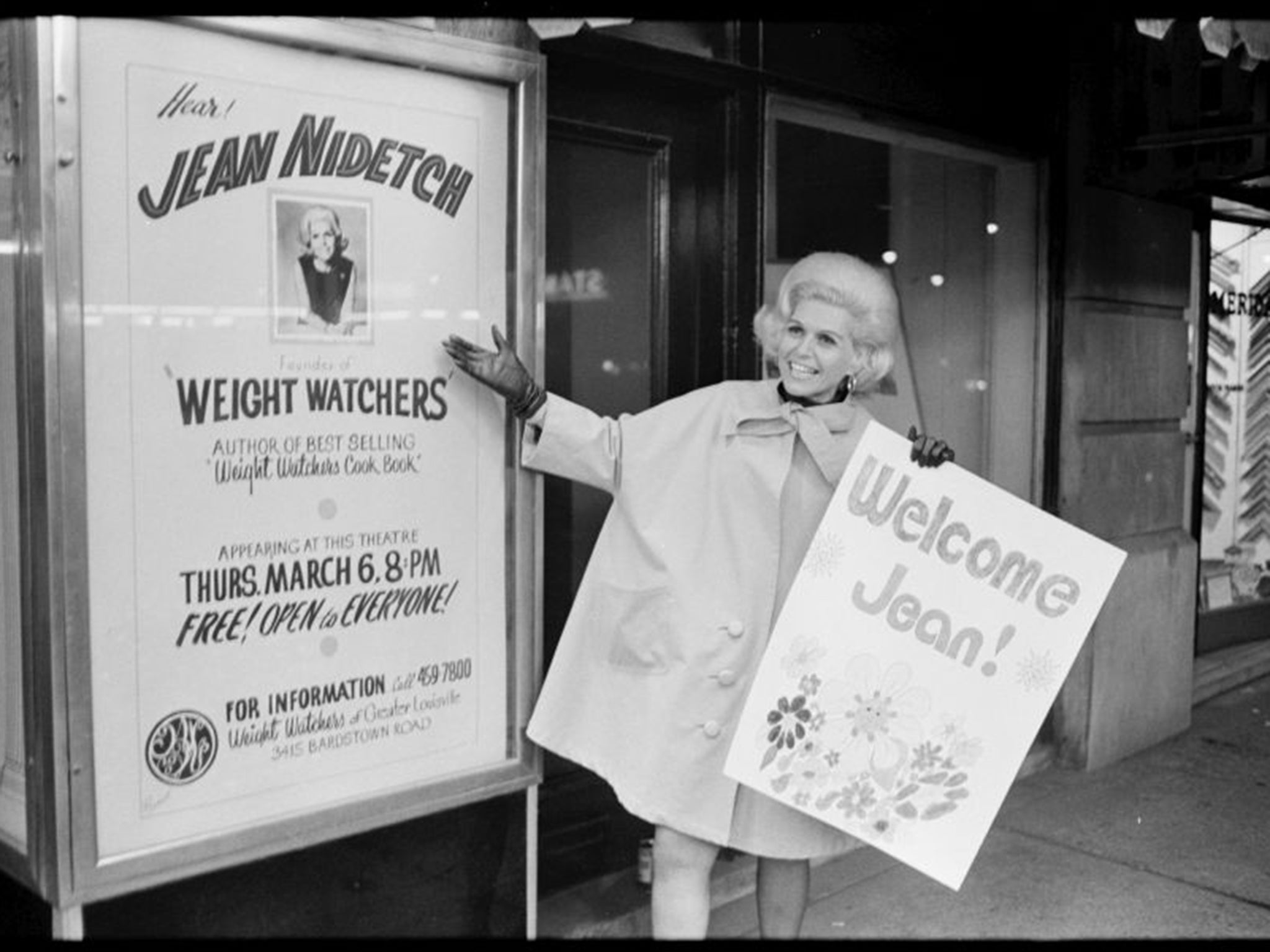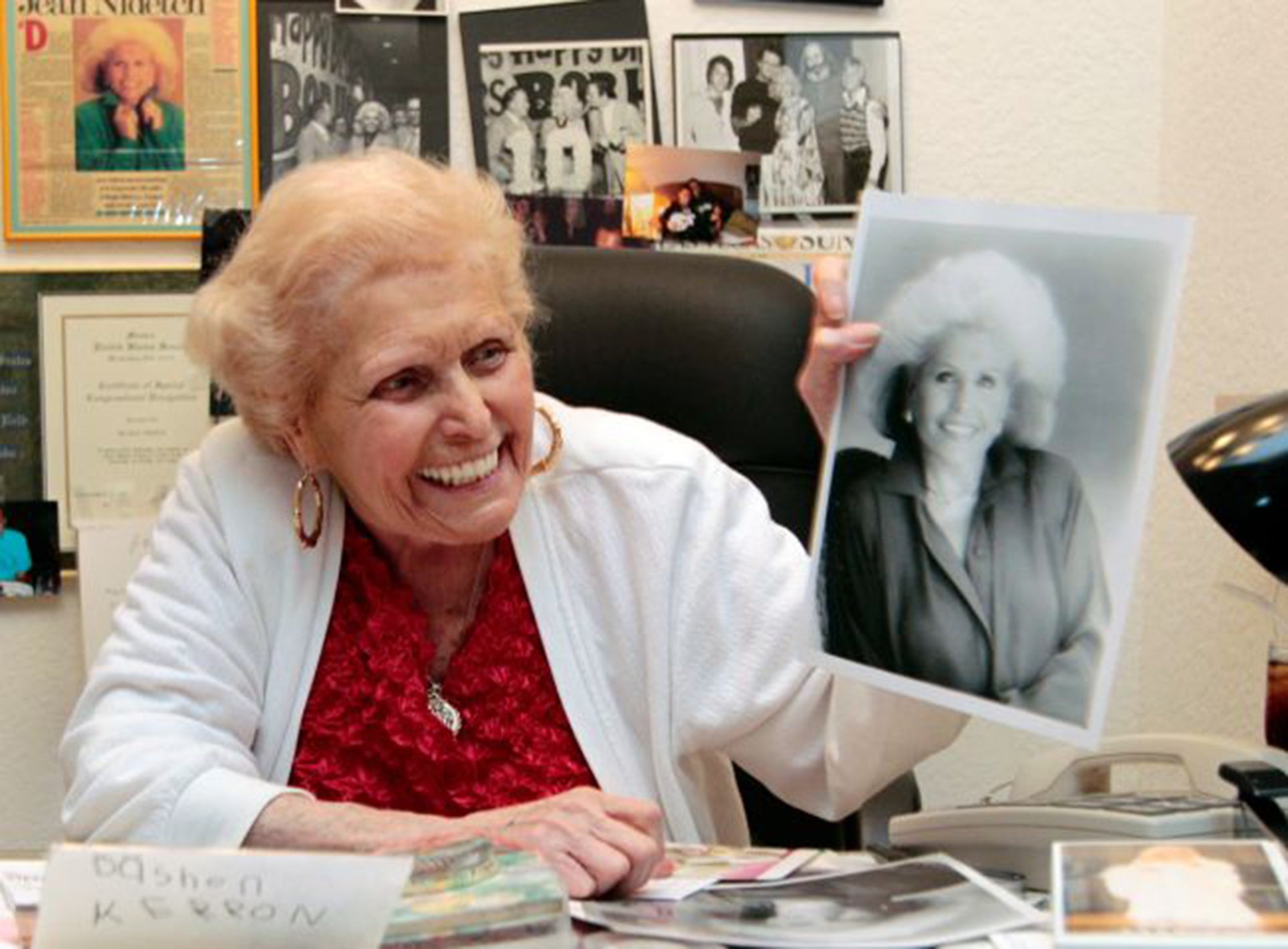Jean Nidetch: As we mourn death of Weight Watchers founder, have we learned lessons on keeping weight down?
The diet pioneer who died last week exhorted Americans to ‘drop the damn fork’, but the nation is still getting fatter


Your support helps us to tell the story
From reproductive rights to climate change to Big Tech, The Independent is on the ground when the story is developing. Whether it's investigating the financials of Elon Musk's pro-Trump PAC or producing our latest documentary, 'The A Word', which shines a light on the American women fighting for reproductive rights, we know how important it is to parse out the facts from the messaging.
At such a critical moment in US history, we need reporters on the ground. Your donation allows us to keep sending journalists to speak to both sides of the story.
The Independent is trusted by Americans across the entire political spectrum. And unlike many other quality news outlets, we choose not to lock Americans out of our reporting and analysis with paywalls. We believe quality journalism should be available to everyone, paid for by those who can afford it.
Your support makes all the difference.An American pioneer died last week. In her heyday in the 1960s and 70s, with her bouffed blond hairdo and brassy Brooklyn accent, Jean Nidetch might have been an aspiring actress or a gangster’s moll. In fact, she was the founder of Weight Watchers, the international dieting company aimed at solving the problem that torments Americans and much of better-off humanity today: how on earth do I lose weight?
By 1961, when her moment of truth arrived, she was a New York mother and housewife in her late thirties who couldn’t stop eating. Food was consolation for every setback and her weight had ballooned to 214lb, more than 15st, and no manner of dieting fads could do the trick. Epiphany came one day at the supermarket, when she ran into a neighbour who took one glance at her bulging belly and said: “You look great, Jean. When are you due?”
A mortified Nidetch enrolled at an obesity clinic, but nothing could quell her secret addiction to a brand of chocolate-coated, marshmallow-stuffed biscuits called Mallomars (still around to this day, incidentally). Clearly, this was not a problem to be tackled alone. In desperation, she started meeting a group of friends in similar predicaments: one thing led to another; friends of friends started to come along and by 1963 Weight Watchers was born, charging $3 a session, equal to that of a movie ticket – a ratio that more or less persists to this day. Nidetch herself lost more than 5st, and kept that way until she died.
The company was an instant hit. H J Heinz bought Weight Watchers in 1978, before it was acquired by a Luxembourg-based private equity company in 1999. Today, Weight Watchers is a $1.3bn dollar enterprise that operates in 30-odd countries. It’s had its troubles of late, as members have deserted, lured by the fickle charms of the internet age: online dieting sites, calorie-counting smartphone apps and the like.
But Weight Watchers remains the gold standard of what has become a veritable weight-control industry. Its basic formula remains the same: a sensible diet and realistic goals (none of this “you can lose 50lb in a month and still eat the foods you like” nonsense peddled by dietary alchemists and hucksters), and support groups to keep you on the straight and narrow. Ultimately, it’s a matter of self control, or to use Nidetch’s own words, “Drop the damn fork”.

Alas, a growing number of Americans still just can’t. A third of the population is now officially classified as obese, a figure that has been roughly stable for the past few years, but double that of 1980. Childhood obesity has climbed even faster, to about 17 per cent, where it has been stuck for the past decade, despite a barrage of efforts – from healthier school meals and more accurate food labelling to public health campaigns from the White House down – to reduce it.
Almost every First Lady has her pet issue. Nancy Reagan proclaimed “Just say no” to drugs. Hillary Clinton fought for women’s rights, while Laura Bush – a librarian in an earlier existence – was deeply into education. Michelle Obama’s chosen cause is childhood obesity. In 2010, she launched her “Let’s Move” initiative to foster healthy eating and more exercise for young people. And, she converted 1,800 sq ft of the South Lawn into a kitchen garden, whose produce has been used for state dinners.
The health focus extends to her husband as well. More than any of its predecessors, the Obama White House exudes a jock culture. Personal trainers abound, and (grey hair aside) this enviably slender President, who reportedly has even claimed that broccoli is his favourite food, is fitness personified. Compare and contrast with the late-night pizzas and burgers wolfed down by the boss and his aides when Bill Clinton was in charge – though, after his major heart surgery in 2004, the slimmed-down former president is now a crusader for healthy eating.
But how much has all this high-profile setting of examples helped? There are some encouraging portents. According to federal data, the obesity rate among children, aged from two to five, dropped by 43 per cent in the decade to 2014. This, however, implies that things have, if anything, grown worse among teenagers. And future problems pile up. Adult obesity, with its attendant risks of diabetes and heart illness, has become the country’s greatest single health challenge, one that could overwhelm vital welfare programmes such as Medicaid and Medicare, already burdened by a baby-boomer generation moving into retirement and old age.
The culprits are well known, and far tougher to overcome than in Jean Nidetch’s era of lesser plenty. They range from a fast food industry that barely existed in 1961 when she had her supermarket moment of truth, to the huge portions served in ordinary restaurants. (Cue the waitresses’ refrain at the sight of an uncleared plate: “Are you still working on it, hon?”) The current arch-villain is sugar, especially in the guise of corn syrups used for fizzy drinks.
There are hopeful signs. Soda consumption has fall fallen to its lowest level in 20 years, with 63 per cent of Americans, according to one study, saying they actively avoid the stuff. But that wasn’t enough to save former New York mayor Michael Bloomberg’s initiative to ban the sale of jumbo-sized Cokes, Pepsis and the rest.
Ultimately, Bloomberg fell foul of obesity’s greatest defender: the belief of Americans that freedom of choice is paramount, that government – above all, the “nanny state” that Bloomberg seemed to epitomise – must be kept at bay. In other words, it’s up to the individual, as Nidetch herself acknowledged. “Food is not your remedy for problems,” she declared.
“Food is not going to change your life. If you’re going to lose weight, you have to do it by changing your way of thinking about food. It cannot be the highlight of your life.” Sadly, easier said than done.
Join our commenting forum
Join thought-provoking conversations, follow other Independent readers and see their replies
Comments